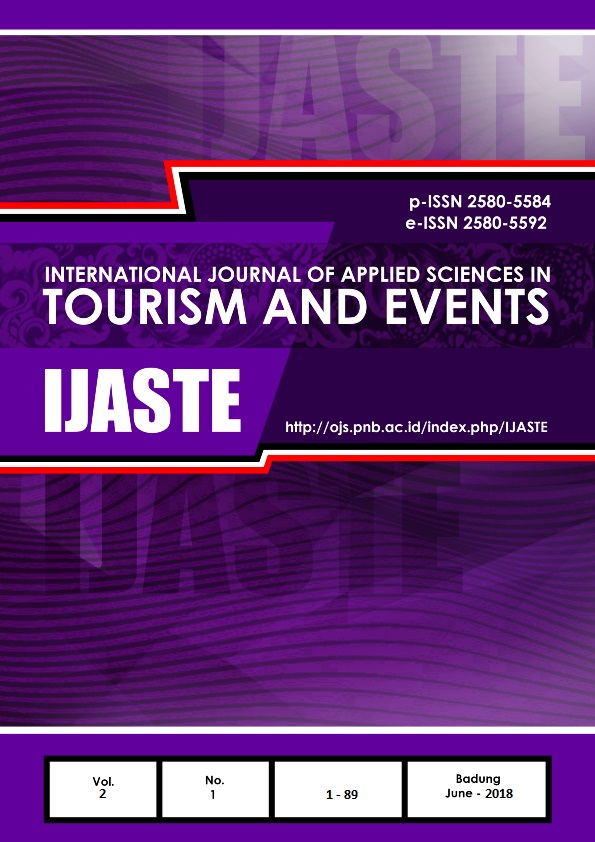AIKIDO IN BALI: JAPANESE CULTURAL DIPLOMACY AND ITS RELATIONSHIP WITH TOURISM BUSINESS
Abstract
There is a significant growing number of Balinese people who learn many kinds of martial arts from other countries. One of the martial arts is Aikido, originated from Japan, which has been accepted and well developed in Bali, Indonesia. This current study aimed to find out and understand the diplomacy of Japanese culture through the practice of Aikido and its relationship with tourism business in Bali. This qualitative research took place in Aikido’s dojo (training centre) in Bali. The data were collected through observation, in-depth interview, documentation, and literature study. The technique applied to analyse the data was the qualitative technique. The findings of this study show that many Japanese aikidokas and their families visit Bali regularly, not only to perform Aikido activities, but also to enjoy the scenary and Balinese culture. The long period of Aikido practice which can be time consuming surely makes Bali an ideal place to spend memorable time for the Japanese aikidoka, their families, and the all the group members. From the political point of view, this phenomenon can be an alternative of diplomacy of Japanese culture, specifically in Bali. This study found that beside the acceptance and the development of Aikido in Bali as parts of globalization and Japanese culture diplomacy, Bali tourism sector was strenghtened at the same time.








